Find Help
More Items From Ergsy search
-
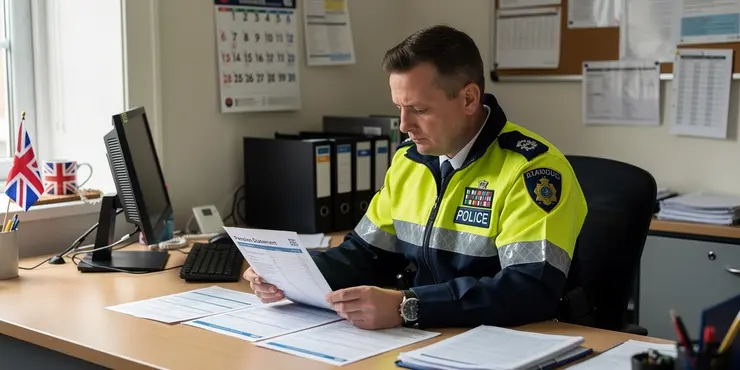
Police Pension Explained
Relevance: 100%
-
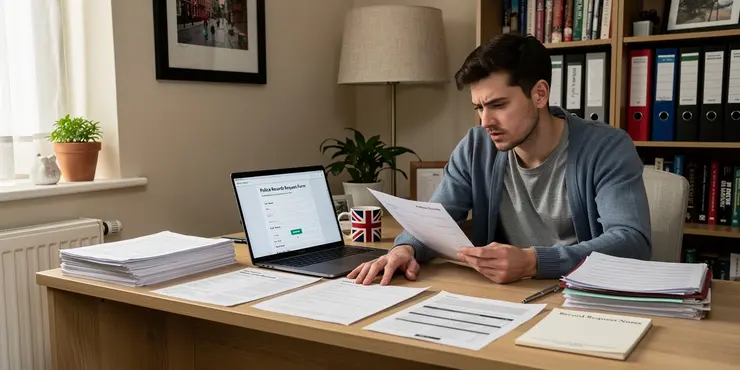
Are there any fees to obtain my police records?
Relevance: 52%
-
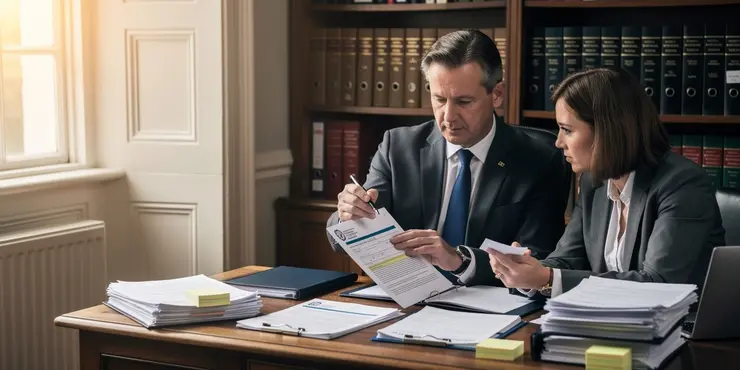
Can access to my police records be denied?
Relevance: 50%
-
Do I have a right to see my police records?
Relevance: 50%
-

Do I have a right to see my police records?
Relevance: 50%
-
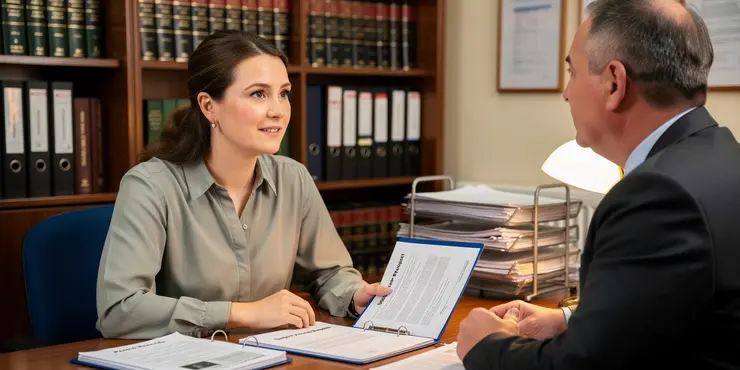
What types of police records are available for me to see?
Relevance: 49%
-
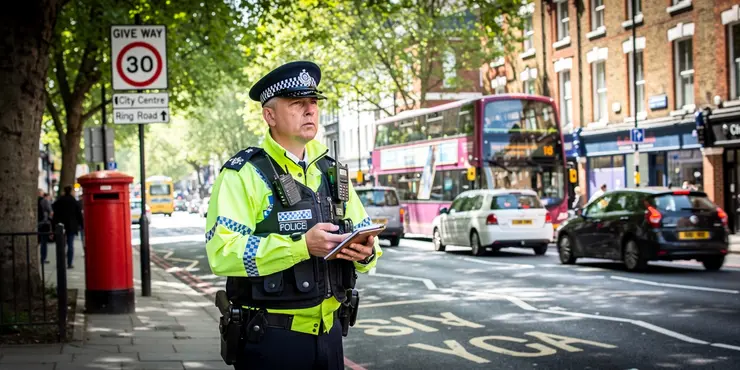
How is dangerous driving detected by police?
Relevance: 49%
-
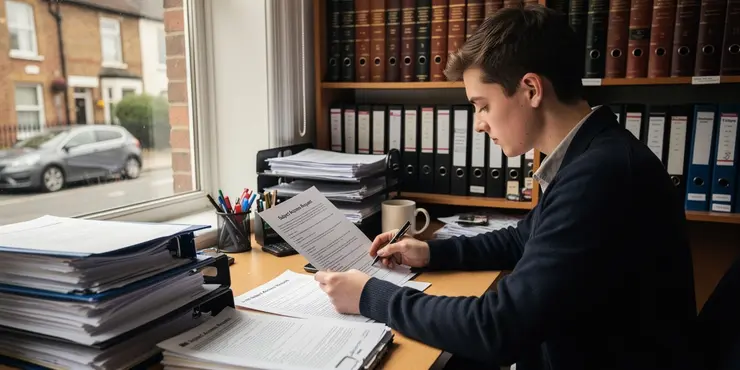
How can I request access to my police records?
Relevance: 49%
-
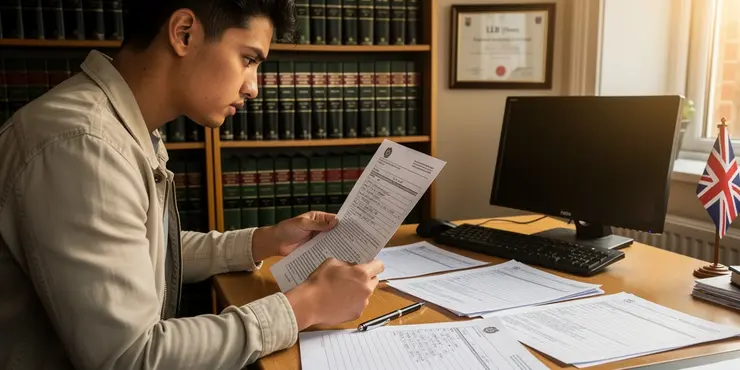
Will accessing my police records show up in background checks?
Relevance: 48%
-

Can police records be expunged or sealed?
Relevance: 48%
-

How can I ensure my police records are accurate?
Relevance: 48%
-

Do I have a right to see other people's police records?
Relevance: 48%
-

Can I access digital or electronic copies of my police records?
Relevance: 48%
-

Can the process of obtaining police records be done online?
Relevance: 48%
-

Is the Pension Wise service reliable for pension advice?
Relevance: 47%
-

What is the impact on pensioners if a pension system collapses?
Relevance: 47%
-

Are all police departments required to provide access to records?
Relevance: 47%
-

What information do I need to provide to access my police records?
Relevance: 47%
-

What laws govern my right to access police records?
Relevance: 47%
-

Can someone else request my police records on my behalf?
Relevance: 47%
-

Can the police access my neighbour’s CCTV footage without consent?
Relevance: 46%
-
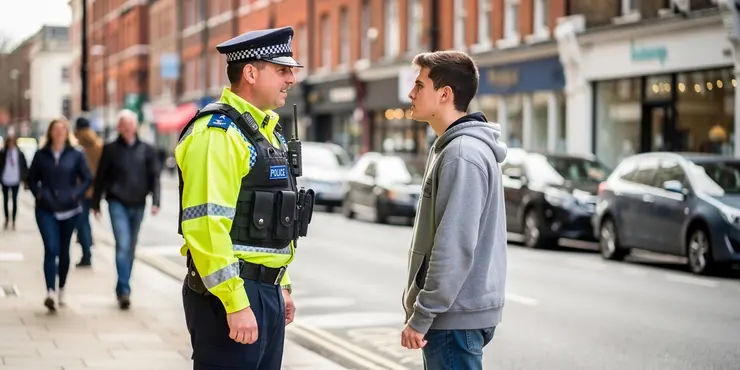
What are my rights if the police want to stop and search me? [Criminal law]
Relevance: 46%
-

What impact does sealing my police records have?
Relevance: 45%
-
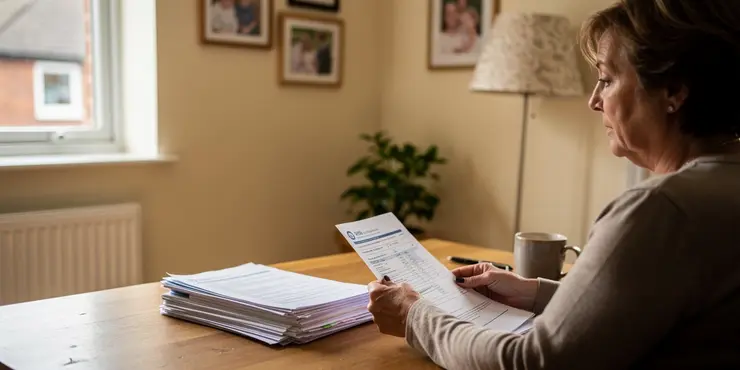
What is the basic pension in the UK?
Relevance: 45%
-

Can pensioners lose all their money if a pension provider fails?
Relevance: 45%
-

Is there a difference between the basic State Pension and the new State Pension?
Relevance: 45%
-

What Happens When Pensions Go Bust! | Pension System Collapse UK
Relevance: 45%
-

Pension rights for Firefighters in the UK
Relevance: 45%
-

Can pension scheme members influence how their pension is managed?
Relevance: 45%
-

How long does it take to obtain my police records?
Relevance: 44%
-

Can I get pension advice directly from pension fund providers?
Relevance: 44%
-
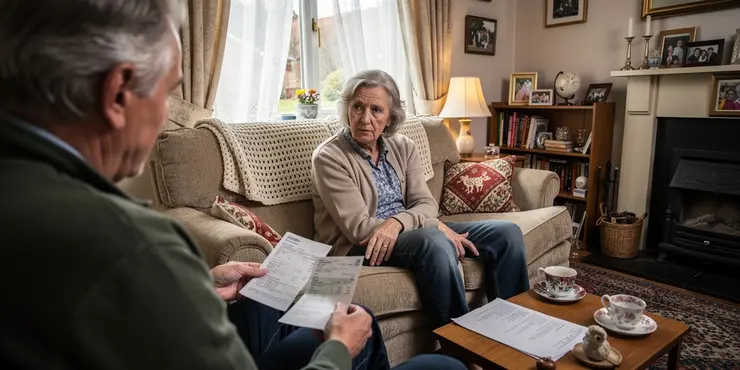
Unfreezing the Truth The UK's Frozen Pensions
Relevance: 43%
-

What is the Pension Protection Fund?
Relevance: 43%
-
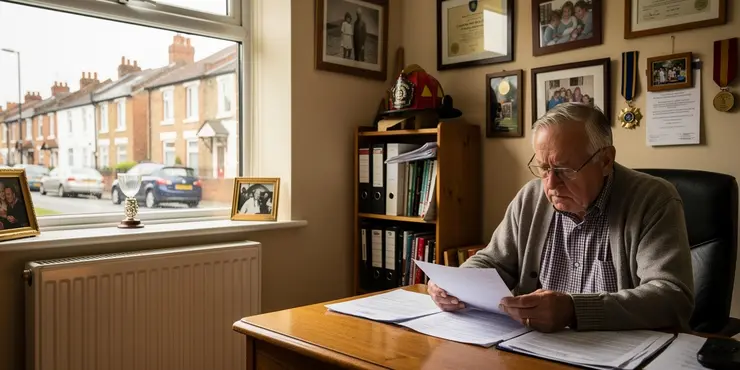
Are firefighter pension benefits taxable?
Relevance: 43%
-
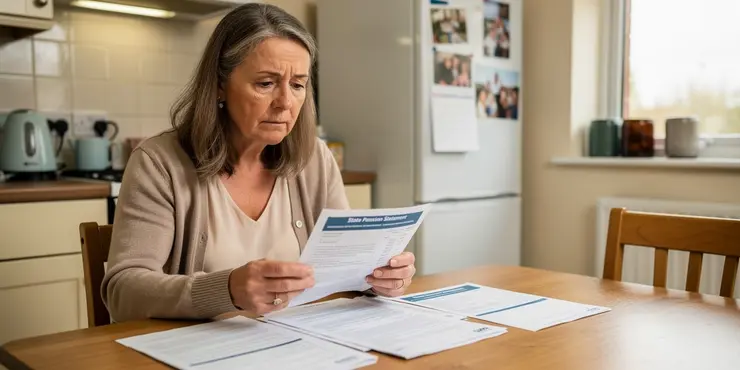
Will I qualify for the new state pension?
Relevance: 43%
-

Public Sector Pension Changes | McCloud Judgement | NHS Pensions etc.
Relevance: 43%
-
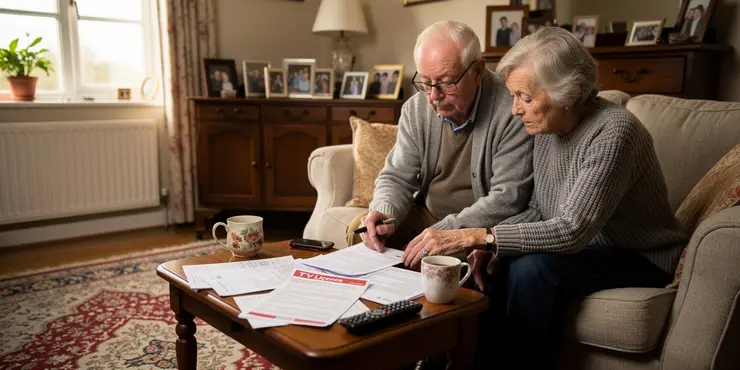
Do pensioners get a free TV license?
Relevance: 43%
-

Why do pension funds go bust?
Relevance: 42%
-

Is there a difference in accessing police records for federal and state cases?
Relevance: 42%
-
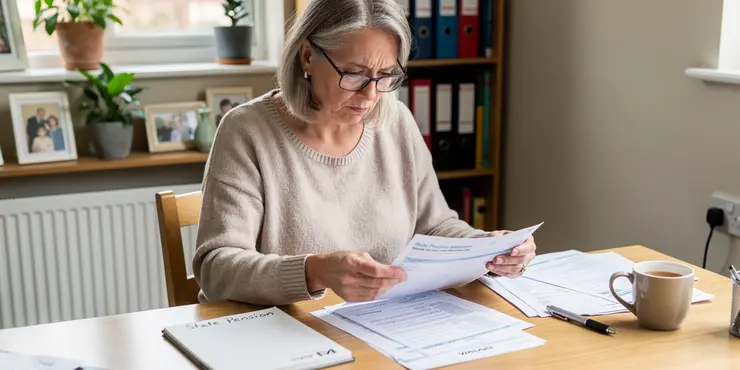
How do I claim the basic State Pension?
Relevance: 42%
Police Pension Explained
Overview of the Police Pension Scheme
The police pension scheme in the United Kingdom is a crucial part of the overall remuneration package for police officers. It provides financial security for officers and their families after retirement. Like other public sector pensions, it's designed to reward long-term service and ensure that officers have a stable income once they are no longer in active duty.
Key Features of the Police Pension
The police pension scheme includes several key features. Officers typically contribute a percentage of their salary into the pension fund, which is supplemented by contributions from their employer. Depending on when they joined the force, police officers may be part of the 1987, 2006, or 2015 pension schemes, with each having different rules regarding retirement age, accrual rates, and benefits structure.
Types of Benefits
Police pensions offer various benefits, including a regular pension income once officers reach retirement age, which varies based on the scheme. Additionally, there are provisions for early retirement under specific conditions, an ill-health retirement option if an officer can no longer perform their duties due to medical reasons, and survivor benefits for the officer's family members. Each scheme has unique eligibility criteria and benefit formulas that consider factors such as years of service and average salary.
Considerations When Planning for Retirement
Officers planning their retirement should take into account how their pension will fit into their overall financial plan. It's important to understand the specific details of their pension scheme and consider additional savings or income sources to maintain their desired lifestyle in retirement. Consulting with a financial advisor can be beneficial in making informed decisions about their retirement planning.
Conclusion
The police pension scheme is an essential component of a police officer's career in the UK. It offers significant financial protection and benefits, rewarding officers for their dedication and service. Understanding the intricacies of the scheme is vital for officers to effectively plan their retirement and ensure a secure financial future.
Police Pension Explained
Overview of the Police Pension Scheme
The police pension in the UK is an important part of a police officer's pay. It helps officers and their families have money after retirement. Like other government pensions, it rewards long-term service and makes sure officers have money when they stop working.
Key Features of the Police Pension
Here are some key features of the police pension. Officers usually pay a part of their salary into the pension fund, and their employer adds money too. Depending on when they started working, police officers may be in the 1987, 2006, or 2015 pension plans. Each plan has different rules for retirement age and benefits.
Types of Benefits
Police pensions give different benefits. Officers get a regular pension when they reach retirement age, which is different for each plan. Officers can retire early in special cases. If an officer is sick and can’t work anymore, they might get ill-health retirement. If an officer dies, their family might get survivor benefits. Each plan has different rules. They look at years of service and average salary to decide benefits.
Considerations When Planning for Retirement
When planning for retirement, officers should think about how their pension fits with their money plans. They should know the details of their pension plan and think about saving extra money to live the way they want when they retire. Talking to a financial advisor can help officers make the best retirement choices.
Conclusion
The police pension is very important for police officers in the UK. It gives them money and benefits for their hard work. Knowing how the pension works helps officers plan for a safe and happy future.
Frequently Asked Questions
What is a police pension scheme?
A police pension scheme is a type of occupational pension plan in the UK designed specifically for police officers. It provides retirement benefits and other benefits such as ill-health or death in service, based on the officer’s career earnings and years of service.
Who is eligible to join the police pension scheme?
You are eligible to join a police pension scheme if you are a serving police officer in the UK. The eligibility may vary slightly depending on the specific scheme applicable at the time of joining.
How do I join the police pension scheme?
Typically, police officers are automatically enrolled in the police pension scheme upon joining the police force, but you should confirm this with your HR department to ensure you are enrolled in the correct scheme.
What are the different types of police pension schemes available?
The main schemes are the Police Pension Scheme 1987, the New Police Pension Scheme 2006, and the Police Pension Scheme 2015. Each scheme has different rules regarding contributions, benefits, and age of retirement.
How are police pension benefits calculated?
Police pension benefits are generally calculated based on your final salary and the number of years of pensionable service. Each scheme has its own accrual rate and rules for calculating benefits.
Can I transfer my police pension to another pension scheme?
Yes, you can transfer your police pension to another scheme. However, it’s important to consider the implications and whether you may lose any valuable benefits. Consulting a financial advisor is advisable.
What happens to my pension if I leave the police force early?
If you leave the police force before retirement, you may have several options, including deferring your benefits until retirement age, transferring your benefits to another pension scheme, or taking a refund if eligible.
When can I start receiving my police pension?
The minimum pensionable age depends on the specific scheme. Generally, it can range from 60 to 65, but officers with certain service durations or conditions may be able to retire earlier.
What is ill-health retirement, and how does it affect my pension?
Ill-health retirement allows officers who can't perform their duties due to medical conditions to retire early and receive pension benefits. The process and benefits depend on the severity and classification of the ill-health.
Are there tax implications on my police pension?
Police pensions are subject to income tax. However, you may receive tax relief on your contributions, and part of your pension may be taken as a tax-free lump sum at retirement.
Can I take a lump sum from my police pension on retirement?
Yes, you may have the option to take a tax-free lump sum on retirement, subject to scheme rules. The lump sum typically reduces the annual pension amount you receive.
How is my police pension affected if I work after retirement?
If you work after retirement, it generally does not affect your police pension unless returning to a police role that may trigger abatement rules. Non-police employment is usually unaffected.
What is a 'commutation' in the context of police pensions?
Commutation is the process of exchanging part of your annual pension for a one-off tax-free lump sum at retirement. The specific terms vary by scheme.
What happens to my police pension if I die before retirement age?
If you die before reaching retirement age, your dependents may receive benefits such as a lump sum death grant and a pension for your spouse or civil partner, subject to scheme rules.
Can changes in government policy impact my police pension?
Yes, changes in legislation or policy can impact the terms of police pensions, including retirement age and contribution rates. Keeping informed about potential changes is essential.
What is a police pension scheme?
A police pension scheme is a plan that gives money to police officers when they stop working because of age or health. This money helps them live after they retire from being a police officer.
If you find reading hard, you can try asking someone to read it to you or use tools like audiobooks. Remember, it's okay to ask for help!
The police pension scheme is a special plan for police officers in the UK. It gives them money when they stop working. It also helps if they get sick or die while doing their job. This money depends on how much they earned and how long they worked as a police officer.
Who can join the police pension plan?
You can join the police pension plan if you work as a police officer. This plan helps you save money for when you stop working.
If you want help to understand more, you can:
- Ask someone you trust to explain it to you.
- Use picture cards or simple drawings to help you remember.
- Listen to recordings that talk about the police pension plan.
If you are a police officer in the UK, you can join a special retirement savings plan for police. The rules might be a little different depending on the plan when you join.
How can I join the police pension plan?
Do you want to join the police pension plan? It's like a special savings plan for when you stop working. Here is how you can join:
- Ask someone at your workplace about the police pension plan. They can help you.
- You might need to fill out a form. They will tell you how to do it.
- If you find it hard, ask someone you trust to help you. This could be a friend or family member.
Remember, it’s okay to ask for help! There are tools that can help, like using a computer to fill out forms. Good luck!
When you become a police officer, you usually sign up for the police pension plan automatically. But, you should talk to the HR department to make sure you are in the right plan.
What kinds of police pension plans are there?
There are different plans for police pensions. They help police officers save money for when they stop working. Here are some types:
- Older Plan: This is for people who started working a long time ago. It might have different rules.
- Medium Plan: This is for people who started working a few years ago. It has its own rules too.
- Newer Plan: This is for people who started working recently. It works differently from the older plans.
It's important to know which plan you have. You can ask for help to understand it better. Here are some tips:
- Ask someone at work who knows about pensions.
- Use a computer tool that explains pensions in simple words.
- Talk to a money expert for advice.
The police have three main pension plans. They are:
1. Police Pension Plan 1987
2. New Police Pension Plan 2006
3. Police Pension Plan 2015
Each plan has its own rules about:
- How much money you need to pay in.
- The benefits you get.
- The age you can retire.
Here are some tools and tips to help you understand:
- You can use a calendar to keep track of dates and times.
- Make a list of questions to ask someone who knows about pensions.
- Try using a calculator to check numbers.
How do police get their pension money?
Police officers get money when they retire. This money is called a pension.
Here is how it works:
- Police work for many years.
- They save a bit of their money each month.
- The police company also saves some money for them.
- When police stop working, they get this saved money every month.
To help you understand more:
- You can ask someone to explain it.
- You can look at pictures to help you learn.
- You can use simple books or apps that make learning easier.
Police pension benefits are like a special money gift you get when you stop working as a police officer. How much you get depends on how much money you earned at the end of your job and how long you worked there.
Each pension plan has its own way of working out how much money you will get. They use special rules to do this.
You can use tools like calculators or ask someone to help you understand more.
Can I move my police pension to a different pension plan?
Yes, you can move your police pension to a different plan. But it's important to think about what might happen and if you might lose any good benefits. Talking to a money expert for advice is a good idea.
What happens to my pension if I leave the police force early?
If you stop working as a police officer before you plan to retire, here is what could happen to your pension:
- Your pension is money saved for when you are older and stop working.
- If you leave early, you might need to wait until you are older to get your pension money.
- You might have some choices about what to do with your pension:
- You can keep it saved until you are older.
- Sometimes you can move the pension to another job's pension plan.
If you need help to understand, you can:
- Ask someone you trust to explain it to you.
- Use online tools that help explain pensions in simpler words.
- Look for videos that talk about pensions in an easy way.
If you stop working as a police officer before you retire, you can choose what to do with your pension money. Here are some options:
- You can wait to get your pension money until you are older and reach retirement age.
- You can move your pension money to another pension plan.
- You might be able to get your money back, if you can have a refund.
If you need help understanding this, ask someone you trust or use a tool like an online calculator. These can help you see what happens with each choice.
When can I get my police pension?
The age when you can start getting your pension money depends on the pension plan you have. Usually, this age is between 60 and 65 years old. But some workers who have worked a long time or in special jobs might be able to stop working and get their pension earlier.
What is retiring because of illness, and what happens to my pension?
Retiring because of illness means stopping work because you are too sick to continue. When you stop working due to illness, it can change how you get your pension money.
If you have questions or need help, you can talk to someone who knows about pensions, like a pension advisor or a support service. They can give you advice and help you understand what happens next.
If police officers get too sick to work, they can stop working early. This is called "ill-health retirement." They can still get money from their pension. How much money they get depends on how bad their health is.
Do I need to pay tax on my police pension?
When police officers retire, they get money called a pension. They have to pay tax on this money. But, there is some help with this. When police officers put money into their pension while working, they might get some tax money back, called tax relief. Also, when they retire, they might be able to take out some money all at once without paying tax on it. This money is called a tax-free lump sum.
If reading is hard, you can try using tools like text-to-speech apps. These can read words out loud. Remember to ask someone for help if you need it.
Can I get a big payment from my police pension when I stop working?
When you stop working as a police officer, you might want to get a big payment from your pension. This means taking some of your pension money all at once.
Here are some helpful tools to understand your pension better:
- You can talk to someone who knows about pensions. They can help you understand what you can do.
- You can ask a family member or friend to help explain it to you.
- Use a calculator to help you see how much money you can get.
Yes, when you retire, you might be able to take some money all at once without paying tax. This is called a lump sum. But remember, if you take this money, the regular payments you get each year might be smaller.
What happens to my police pension if I work after I retire?
If you stop being a police officer and get a pension, you might wonder what happens if you get a new job.
Here’s what you need to know:
- Your pension might change if you earn a lot in your new job.
- It’s good to ask someone who knows about pensions for help to understand your specific situation.
- You can use tools like a pension calculator to see how your pension might be affected.
To learn more, talk to someone at your pension office or a financial advisor.
If you work after you retire, it usually does not change your police pension money. But if you go back and work as a police officer, different rules might make your pension money change. Working in other jobs won't usually change your pension.
What does 'commutation' mean for police pensions?
A 'commutation' is when a police officer chooses to get some of their pension money as a big payment all at once. This means they will get a smaller amount of money each month from their pension later.
If you want help to read this, you can use helpful tools like text-to-speech apps or ask someone you trust to explain it to you.
Commutation is when you swap some of your pension money for a big tax-free cash payment when you retire. The rules for this can be different depending on your plan.
What will happen to my police pension if I die before I retire?
If you die before you retire, your family might get some help. They could get a one-time money gift and a regular payment for your husband, wife, or partner. This depends on the rules of the plan you have.
Can changes in government rules affect my police pension?
Yes, changes in the rules made by the government can affect your police pension. This means that they might change how much money you get or when you can get it.
If you are worried, here are some things you can do:
- Talk to someone who knows about pensions. They can help you understand better.
- Look for easy-to-read guides about police pensions online.
- Use a calculator tool online to see how much pension you might get.
Yes, new laws or rules can change police pensions. This might change how old you need to be to retire or how much money you pay. It is important to stay updated about changes like this.
Useful Links
This website offers general information and is not a substitute for professional advice.
Always seek guidance from qualified professionals.
If you have any medical concerns or need urgent help, contact a healthcare professional or emergency services immediately.
Some of this content was generated with AI assistance. We’ve done our best to keep it accurate, helpful, and human-friendly.
- Ergsy carfully checks the information in the videos we provide here.
- Videos shown by Youtube after a video has completed, have NOT been reviewed by ERGSY.
- To view, click the arrow in centre of video.
- Most of the videos you find here will have subtitles and/or closed captions available.
- You may need to turn these on, and choose your preferred language.
- Go to the video you'd like to watch.
- If closed captions (CC) are available, settings will be visible on the bottom right of the video player.
- To turn on Captions, click settings .
- To turn off Captions, click settings again.
More Items From Ergsy search
-

Police Pension Explained
Relevance: 100%
-

Are there any fees to obtain my police records?
Relevance: 52%
-

Can access to my police records be denied?
Relevance: 50%
-
Do I have a right to see my police records?
Relevance: 50%
-

Do I have a right to see my police records?
Relevance: 50%
-

What types of police records are available for me to see?
Relevance: 49%
-

How is dangerous driving detected by police?
Relevance: 49%
-

How can I request access to my police records?
Relevance: 49%
-

Will accessing my police records show up in background checks?
Relevance: 48%
-

Can police records be expunged or sealed?
Relevance: 48%
-

How can I ensure my police records are accurate?
Relevance: 48%
-

Do I have a right to see other people's police records?
Relevance: 48%
-

Can I access digital or electronic copies of my police records?
Relevance: 48%
-

Can the process of obtaining police records be done online?
Relevance: 48%
-

Is the Pension Wise service reliable for pension advice?
Relevance: 47%
-

What is the impact on pensioners if a pension system collapses?
Relevance: 47%
-

Are all police departments required to provide access to records?
Relevance: 47%
-

What information do I need to provide to access my police records?
Relevance: 47%
-

What laws govern my right to access police records?
Relevance: 47%
-

Can someone else request my police records on my behalf?
Relevance: 47%
-

Can the police access my neighbour’s CCTV footage without consent?
Relevance: 46%
-

What are my rights if the police want to stop and search me? [Criminal law]
Relevance: 46%
-

What impact does sealing my police records have?
Relevance: 45%
-

What is the basic pension in the UK?
Relevance: 45%
-

Can pensioners lose all their money if a pension provider fails?
Relevance: 45%
-

Is there a difference between the basic State Pension and the new State Pension?
Relevance: 45%
-

What Happens When Pensions Go Bust! | Pension System Collapse UK
Relevance: 45%
-

Pension rights for Firefighters in the UK
Relevance: 45%
-

Can pension scheme members influence how their pension is managed?
Relevance: 45%
-

How long does it take to obtain my police records?
Relevance: 44%
-

Can I get pension advice directly from pension fund providers?
Relevance: 44%
-

Unfreezing the Truth The UK's Frozen Pensions
Relevance: 43%
-

What is the Pension Protection Fund?
Relevance: 43%
-

Are firefighter pension benefits taxable?
Relevance: 43%
-

Will I qualify for the new state pension?
Relevance: 43%
-

Public Sector Pension Changes | McCloud Judgement | NHS Pensions etc.
Relevance: 43%
-

Do pensioners get a free TV license?
Relevance: 43%
-

Why do pension funds go bust?
Relevance: 42%
-

Is there a difference in accessing police records for federal and state cases?
Relevance: 42%
-

How do I claim the basic State Pension?
Relevance: 42%


